Why Is My Puppy Pooping So Much?
As a dog owner, you may find yourself occasionally obsessing over your puppy’s poop—from its color, frequency, and consistency. Also, you may be curious about what’s expected.
Usually, puppies poop often because, with their tiny bodies, it only takes a short while for the food to move from one end to the other. But the truth is the frequency depends on each pup.
Don’t be embarrassed about your dog poop question! As a dog expert, I get asked about puppy poop and dog poop all the time. It is just a part of dog ownership!
The number of times your puppy poops every day ought to be consistent—whether it is once or four times in a day. Provided there’s consistency, there is no cause for alarm. However, if you find your pup “doing its thing” more often than usual, it may indicate something serious.
In this article we discuss
- Is it okay for puppies to poop a lot
- When you should expect a dog to poop
- How diet and bacteria impact puppy poop frequency
- And what does healthy puppy poop look like?
Is It Okay for My Puppy to Poop a Lot?
Yes, it’s perfectly fine for your puppy to poop a lot. Young puppies need to go approximately 30 minutes after meals.
At times, puppies poop almost every hour, but this is normal behavior. One explanation for their frequent poops is that they are similar to a human baby. This means that they have no control over their intestines; hence, waste will just come on right out after digestion.
Also, puppies pooping a lot may be a sign of a growth spurt. As their bodies grow, they require more energy. This results in more need to poop. You will also realize that they tend to eat more.
The only time you should be concerned about your pup’s waste is if it turns into a strange color. Or if the poop seems exceptionally loose. The frequency or timing does not matter as much.
Yet, in as much as it’s okay for puppies to poop a lot, it’s not normal if they go from being a typical twice-a-day-er to requiring to go five or six times. They could be having some digestion issues, and you will likely need to visit a vet.
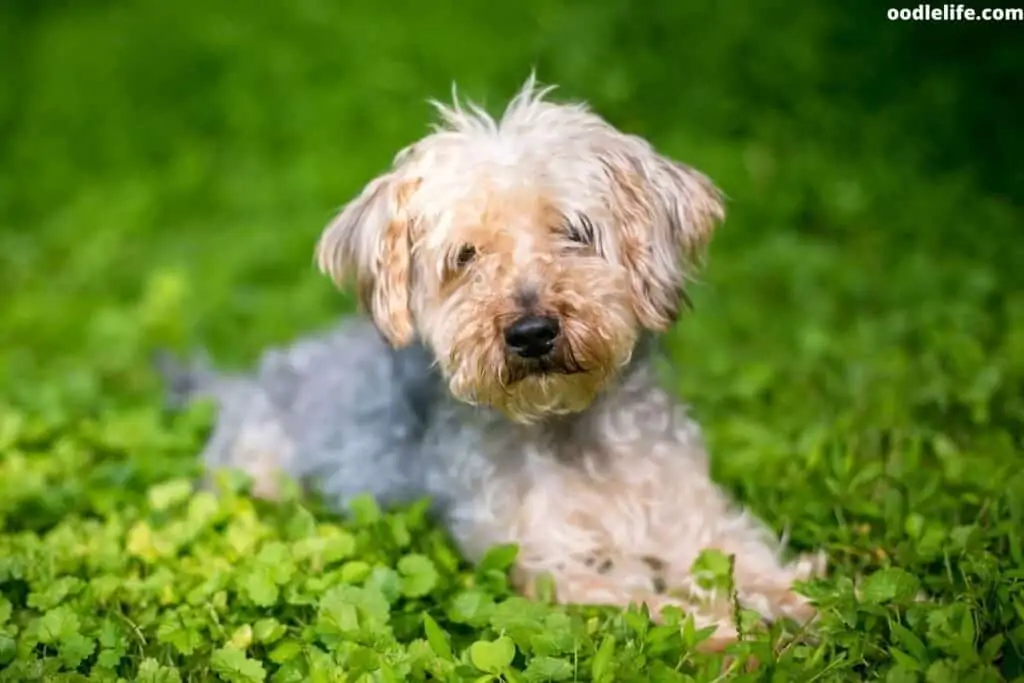
Location
You should pay attention to the area your pup excretes. Typically, a puppy that is well-trained only poops in a place where it knows it is allowed to do so. However, it’s also not common for even relatively untrained dogs to poop in areas out of their routine litter zone.
Therefore, if the pup marks in unusual places, you should look and see the consistency to ensure they didn’t leave a runny stool. It may mean that your pup was unable to wait until in a zone they are familiar with, and you need to book a vet appointment just to be sure your pup is okay.
When Does My Puppy Need to Poop?
As mentioned, puppies usually need to make waste about 30 minutes after they have eaten their meal. However, your puppy may have a different routine, so be sure that you’re aware of when it usually needs to be taken out. This way, you can notice any changes in its behavior.
If your pup needs to go often, we recommend that you seek medical advice. That said, it would help to understand why your puppy may need to go more frequently before pursuing a professional’s advice. These are some of the moments that make a pup poop frequently.
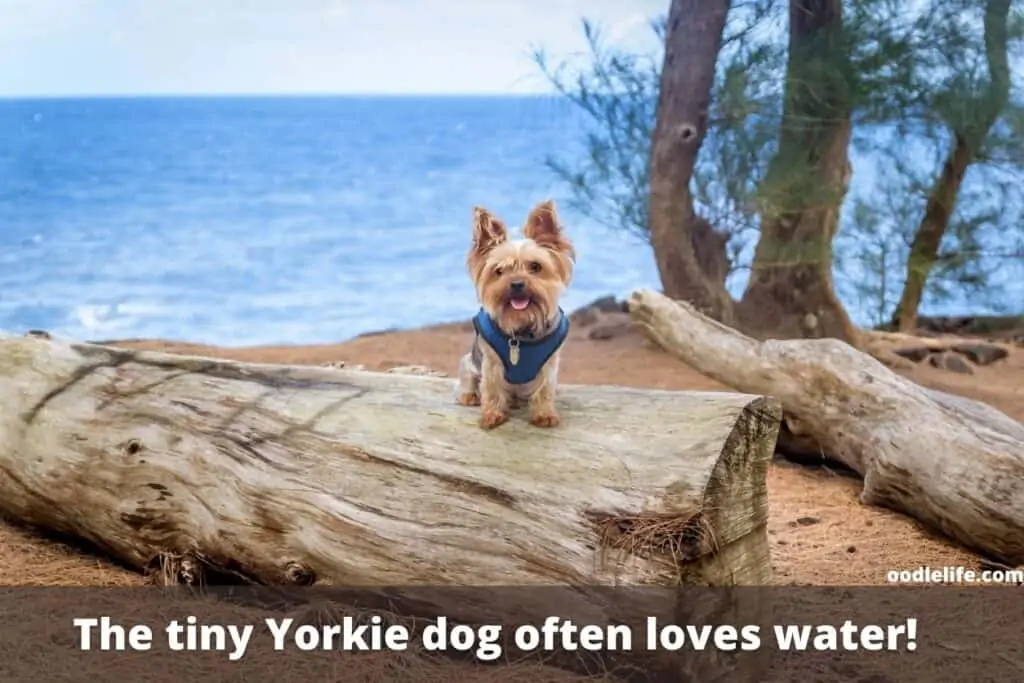
After Overeating
First, it’s easy for many dog owners to give in to their young pup’s demands and feed them more than is necessary. When you feed your puppy excessive amounts of food, it not just spoils their eating habits, but it can also damage your little puppy’s tummy. After all, their stomachs are small and not meant to hold too much at once.
Similarly, feeding your pup scraps from your plate can be problematic as well. This not only has excessive calories but could potentially upset their stomach. Make sure that if you do sneak them treats, that you know the food you’re giving them is safe.
Habits
You should make sure you go for a potty break the first thing in the morning and the last thing each night with your pup. This avoids unfortunate accidents, but it also helps to establish a routine for your new dog.
Of course, they need to go out more frequently than just twice a day. The best times to take your puppy out to poop are after meals, a play session, or a nap. Find a phrase or simple word to associate with bathroom activities and reward positively if the word and your pup’s action correspond.
To ensure a clean and repeatable habit, store dog poop in the correct place in the back yard.
Diet
Suddenly changing your puppy’s diet will probably make the puppy need to go more. A dog’s stomach gets used to specific foods. Changing what they are eating may require some time before their bowels adjust to the new food.
In two weeks, they will be back to their everyday pooping habits. However, you can prevent this from occurring by gradually changing their diet rather than suddenly doing so.
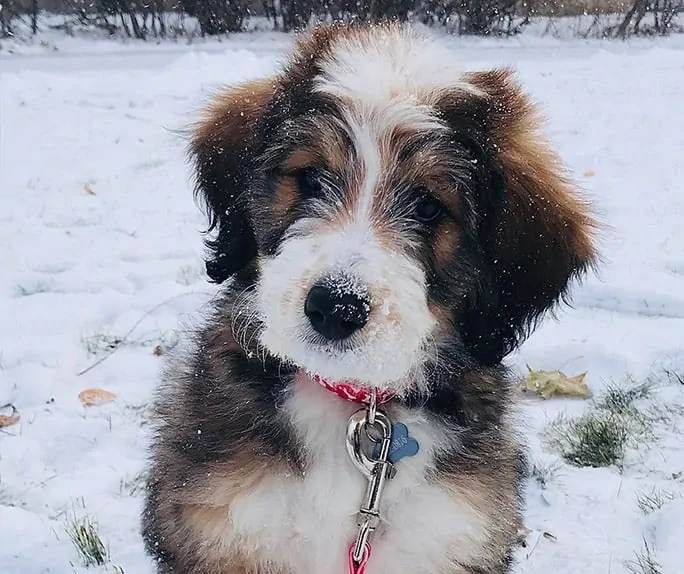
Environment Changes
Dogs are animals of habit. Changes in the environment may throw their typical bathroom cycle out the window. Bringing in a new member to your home, whether an animal or human, the introduction of new noises and changes in home scent may unsettle your dog. Consequently, their pooping routine may also change.
If you suspect this to be the cause for the frequent pooping, you only need to wait it out. They will get accustomed to the new changes and get back to their everyday habits. However, if it takes more than a week, there may be other underlying causes.
Bacteria
Some bacteria can irritate your pup’s bowels, causing excessive pooping. One place puppies could pick up bacteria is, in fact, dog poop. A gram of dog poop has roughly 23 million coliform bacteria. Also, limit the puppy’s access to the kitchen because if they access the trash can, they may get bacteria-causing sickness. These bacteria cause cramps, kidney disorders, intestinal upsets, and diarrhea.
If your dog poop is stinking up the garage – this may be a sign of a dietary or bacterial issue.
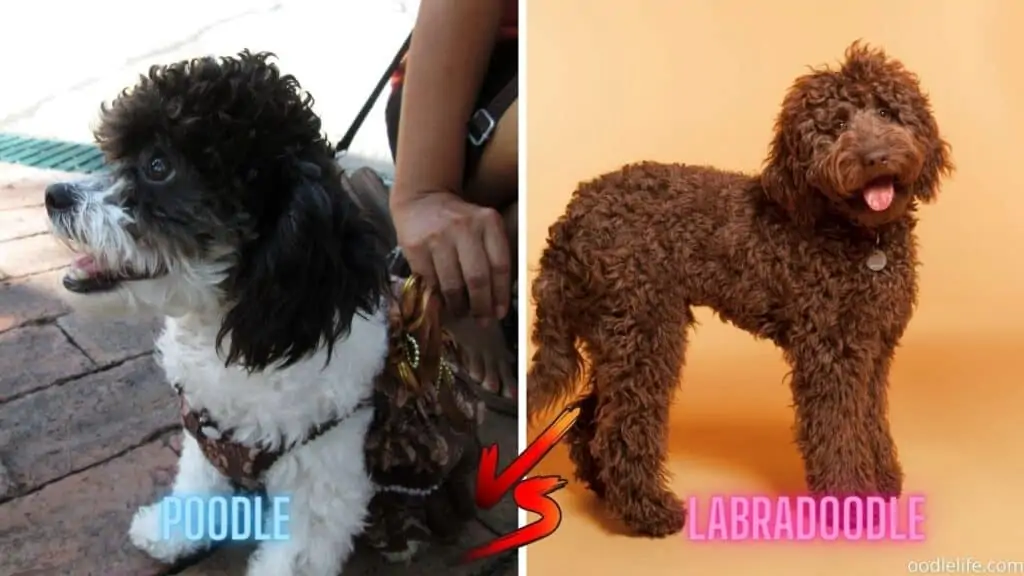
When They’re Stressed or Depressed
Irregular bowel movement in puppies is a sign of stress and depression. This may show as frequent pooping or diarrhea.
If your pup is stressed, it will probably portray other symptoms like more barking, whining, shaking, panting, or pacing. You may also notice them choosing to be in isolation or being aggressive towards other animals or humans.
What to Do if Your Puppy Is Pooping Too Much
There are some steps to take to help your puppy if something’s wrong. But before anything, check with your vet to ensure all is in order.
Your pup may be feeling nauseous or vomiting. Some food helps settle his stomach, such as shredded rice or chicken, pumpkin, bone broth, or baby food. Again, make sure you seek a vet’s consent and guidance to be sure.
How Does Healthy Puppy Poop Look?
Healthy puppy poop should be similar to the color of milk chocolate. Additionally, it should remain compact, moist, and stay intact when picked up. A runny poop could mean that the pup has diarrhea (Washington State University Vet School). Hard poop shows constipation.
Dog diarrhea is a messy and tricky thing to clean up, here is our guide to properly clean up runny dog poop.
Different coloring in the poop should also alert you. But, yellow or black poop is possibly the largest alarm bell. Yellow poop is associated with liver problems, while black suggests some form of internal bleeding.
If your pup has been producing poop of unusual coloring, it would be best to talk to your vet.
If your dog is scooting, this is a problem even if the poop seems healthy.
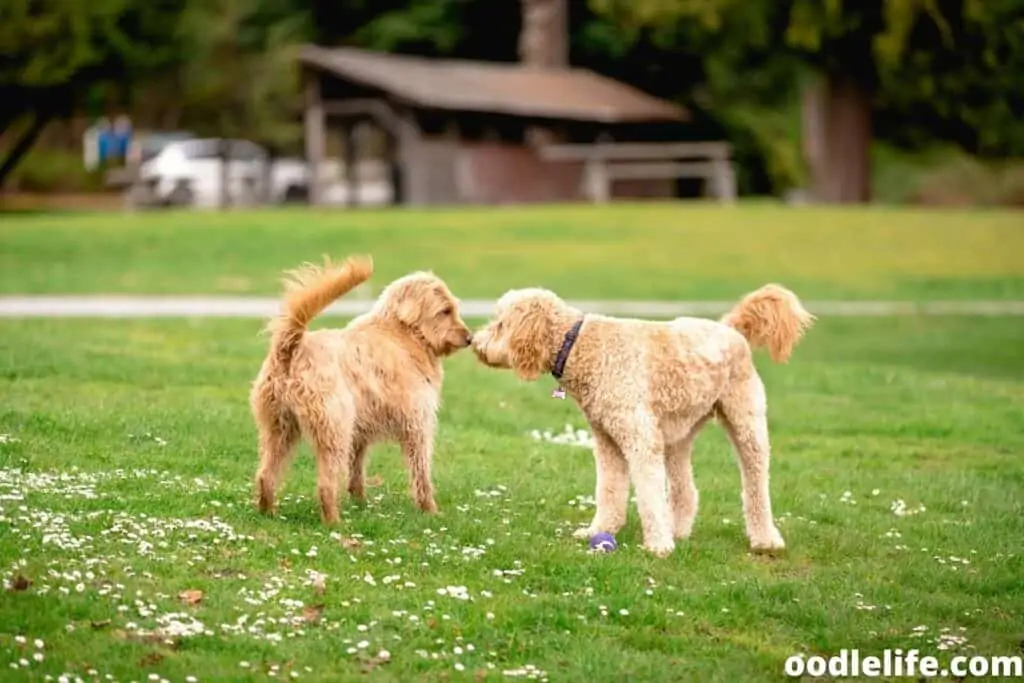
Conclusion
If you find yourself constantly wondering, “Why is my puppy pooping so often?” Always remember that young puppies poop more than grown canine friends.
Nevertheless, it’s your duty as a responsible dog owner to pay attention to when they poop, their behavior before and after pooping, and where they do so. A dog’s behavior tells a lot about its health.
Furthermore, you have to be wary of what your pup munches on. Avoid feeding them a lot more than they can ingest, and also avoid sudden changes in your pup’s diet.